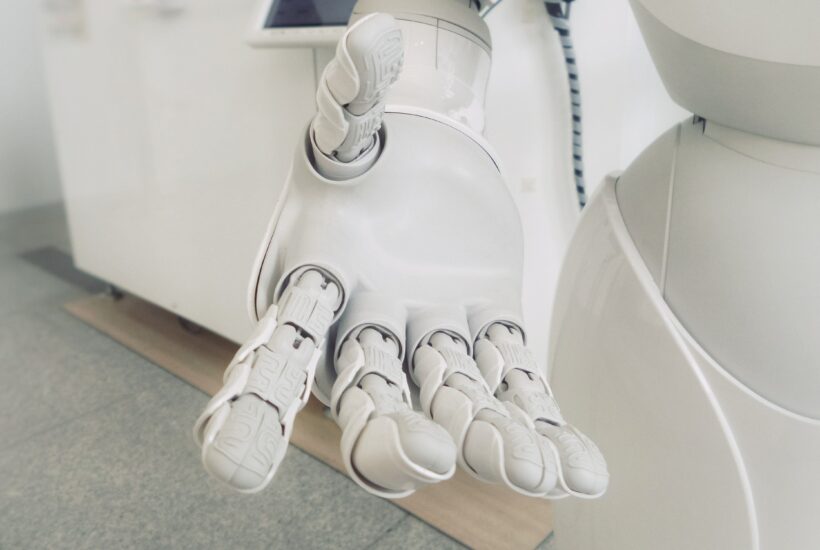Biotech
Able Raises Funds and Approaches the Commercialization of its Exoskeleton
Able has designed a robotic exoskeleton for people with disabilities. In Germany, Able’s CEO highlights the fact that the company has carried out part of the clinical studies at the Heidelberg Hospital. In Spain, the startup has also collaborated with the Guttman Institute in Badalona and the Asepeyo Barcelona Hospital in Sant Cugat.

Able attracted U.S. capital and now takes another step to enter the Spanish and German markets. The U.S. fund Blue Goose has entered the capital of the Catalan startup specialized in the development of robotic exoskeletons for people with disabilities. In addition, several business angels have also participated in this bridge round, which is expected to raise $767,000 (€750,000). Most of these come from Esade BAN, a network of private investors promoted by the alumni of this business center.
The company expects to close the round after the summer, as Alfons Carnicero, co-founder and CEO of Able said. The objective of this initiative is to finance the achievement of the CE marking of the European Union.
Following the pandemic, the startup based at the Universitat Politècnica de Catalunya (UPC) has modified its strategy and plans to open a new round of three million euros once the current one closes. Looking ahead to 2023, the company plans to start marketing its products in Germany and Spain.
Read more on the subject and find the most important business headlines with the Born2Invest mobile app.
Able has designed a robotic exoskeleton for people with disabilities
In Germany, Able’s CEO highlights the fact that the company has carried out part of the clinical studies at the Heidelberg Hospital. In Spain, the startup has also collaborated with the Guttman Institute in Badalona and the Asepeyo Barcelona Hospital in Sant Cugat.
The exoskeleton developed by Able is intended for patients with spinal cord injuries. These people, who have no strength or sensitivity in their legs, put on the device, which performs the force moment after detecting the movements that the user wants to make. The device promotes their mobility and aims to bring a holistic approach to the table since spinal cord injuries lead to other associated health problems such as cardiovascular or psychological problems.
Worldwide, there are currently five million people with spinal cord injuries. Moreover, this figure is increasing with half a million more people each year, according to data provided by Able.
The company closed a €700,000 funding round in 2019
Able was founded in October 2018 on the initiative of Carnicero, Alex Garcia and Josep Maria Font following research started in 2013 at the UPC with the aim of developing a lightweight, easy-to-use device that would not prove to be a great economic burden. In November 2019, the company already closed a $716,000 (€700,000) funding round, in which BStartup Health, Banco Sabadell’s program dedicated to healthcare startups, participated.
The company, which currently employs twelve full-time and two more part-time employees, invested the funds raised in the transformation and evolution of the then prototype of the exoskeleton.
__
(Featured image by Possessed Photography via Unsplash)
DISCLAIMER: This article was written by a third party contributor and does not reflect the opinion of Born2Invest, its management, staff or its associates. Please review our disclaimer for more information.
This article may include forward-looking statements. These forward-looking statements generally are identified by the words “believe,” “project,” “estimate,” “become,” “plan,” “will,” and similar expressions. These forward-looking statements involve known and unknown risks as well as uncertainties, including those discussed in the following cautionary statements and elsewhere in this article and on this site. Although the Company may believe that its expectations are based on reasonable assumptions, the actual results that the Company may achieve may differ materially from any forward-looking statements, which reflect the opinions of the management of the Company only as of the date hereof. Additionally, please make sure to read these important disclosures.
First published in PlantaDoce, a third-party contributor translated and adapted the article from the original. In case of discrepancy, the original will prevail.
Although we made reasonable efforts to provide accurate translations, some parts may be incorrect. Born2Invest assumes no responsibility for errors, omissions or ambiguities in the translations provided on this website. Any person or entity relying on translated content does so at their own risk. Born2Invest is not responsible for losses caused by such reliance on the accuracy or reliability of translated information. If you wish to report an error or inaccuracy in the translation, we encourage you to contact us.

-

 Business5 days ago
Business5 days agoDow Jones Breaks 50,000 as Bull Market Surges Amid Caution and Volatility
-

 Business2 weeks ago
Business2 weeks agoBattered, but Still Bullish on Gold & Silver
-

 Impact Investing3 days ago
Impact Investing3 days agoEU Backs 90% Emissions Cut by 2040 and Delays ETS2 Rollout
-

 Crowdfunding1 week ago
Crowdfunding1 week agoNewcleo Raises $85 Million to Advance Fourth-Generation Nuclear Reactors













